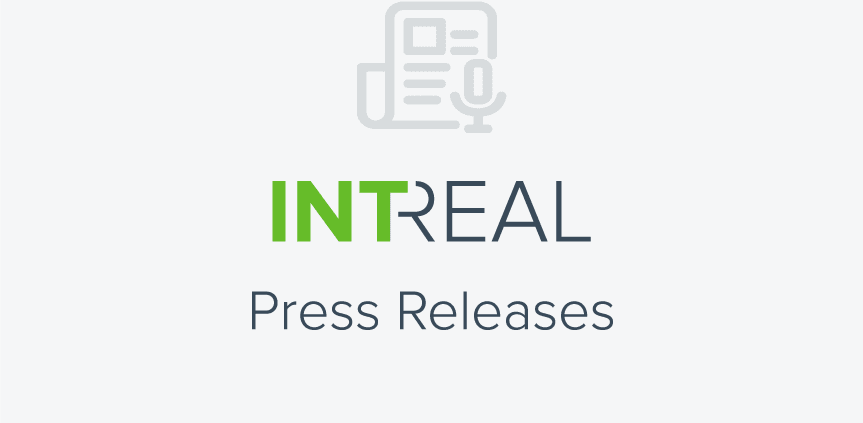Omnibus Package Should Not Be Mistaken for an ESG U-Turn
06. Jun 2025
Following the publication of its Omnibus Directive by the European Commission in late February 2025, many institutional investors, initiators of real estate AIF and asset managers handling real estate funds are wondering how the industry should respond to the initiative. The most pressing question in this context is to what extent measures that have already been initiated to prepare for the originally anticipated reporting requirements should now be implemented, paused or even reversed. Hannah Dellemann, Head of Sustainability at IntReal International Real Estate Kapitalverwaltungsgesellschaft mbH (“INTREAL”) in Hamburg, cautions market participants not to misinterpret the Omnibus Directive: “The Omnibus Package does not represent a U-turn on the EU level. It primarily serves the purpose of reducing the administrative effort and to improve the synchronisation of interrelated regulations, to simplify matters and to pragmatically restructure certain aspects.” She added that the package by no means seeks to “dial back” the ESG regulation. She believes the impression of a U-turn, which has occasionally been voiced, may have been encouraged by the decision of several major banks and asset managers in the United States to withdraw from the “Net Zero Asset Managers Initiate (NZAMI) at roughly the same time, even though it is factually untrue.
Climate Change and an Economical Use of Resources Remain Current Problems
“For one thing, issues like climate change and the necessity to make frugal use of natural resources have not lost in relevance while, on the other hand, ESG aspects keep gaining in significance for more and more investors regardless of the regulatory requirements,” Dellemann elaborated. “Putting the ESG topic on the back burner would strike the wrong note and would also introduce economic risks. The fact that the extended reporting deadlines have eased the pressure to ensure compliance should be treated as an opportunity to enhance the quality of the processes and information that are needed in this context.”
Focus on Simplifying CSRD, Taxonomy and CSDDD
What the so-called Omnibus package seeks to achieve are far-reaching adjustments of the regulatory requirements created particularly by the Corporate Sustainability Reporting Directive (CSRD), the EU Taxonomy and the Corporate Sustainability Due Diligence Directive (CSDDD). It focuses primarily on limiting the CSRD’s scope of application, extending the deadline of first-time reporting requirements, narrowing the group of entities that are subject to the Taxonomy Regulation and simplifying both the reporting standards and the sustainability report audits.
CSRD Reporting Obligation to Be Cancelled for Many Companies
For instance, the reporting requirements under the CSRD regime are supposed to apply only to companies with more than 1,000 employees and 50 million euros in annual revenues or a balance sheet total of 25 million euros or more in future, the point being to more or less merge the group of entities who are subject to the CSRD and the CSDDD, respectively. For companies remaining below the aforementioned thresholds, the requirement to compile a CSRD-compliant sustainability report is to be waived. The EU Commission assumes that this will affect about four out of five businesses that would originally have been subject to the reporting obligation. In addition, the start of the reporting obligation will be postponed by two years for companies who had been expected to present their first report for the 2025 financial year, which means they will have to publish their first such report in 2028 for the 2027 financial year.
Project Milestones Already Achieved Should Not Be Given Up
“Considering that the initial group of subject entities was significantly larger and that the deadlines were earlier, many companies have already mobilised substantial human and material resources in an effort to meet the originally anticipated requirements. What many of them realised in the process is that the data and information gathered for non-financial reporting tend to be financially relevant anyway. Cases in point include the detailed breakdown of consumption data or the comprehensive analysis of certain threats. This information turns out to be valuable for corporate management purposes and possibly for the differentiation vis-à-vis competitors even if their disclosure is no longer mandatory due to the simplified regulatory provisions,” as Dellemann elaborated. “The phase ‘stop the clock’ that you keep hearing in this context may apply to the obligations stipulated by the regulatory framework, but it should not apply to the need to engage the subject matter in general.”
Use Reduced Time Pressure to Increase Data and Process Quality
Rather, she considers it important to seize the opportunities thus created. That the EU Commission now plans to sit down with the stakeholders once more to discuss details and pragmatic solutions makes sense and should be welcomed, in her opinion. This is particularly true for Germany, where the CSRD is still awaiting transposition into national law, a fact that created considerable uncertainty for any company potentially subject to reporting requirements. “For INTREAL, the ESG topic remains highly important nonetheless, and we also advise our fund partners to stay active in this regard. Anyone who now relinquishes the project milestones already achieved because the reporting obligations may not have kicked in yet will also give up the data and information sources that are meaningful not just for sustainability reporting. In the current situation, it is of the essence to stay flexible enough to meet future regulatory requirements and to optimally exploit the economic potential associated with the more exhaustive collecting and processing of data. Now that the time pressure has been eased by the Omnibus process, there is the chance to concentrate on the data and process quality rather than on speed,” said Dellemann. The expert added that the capacity to deliver ESG-relevant data and information in high quality will gain in significance regardless of a company’s own reporting requirements because its business partners may be compelled by their own reporting requirements or by their decision in favour of voluntary reporting to request such disclosures from the company.
Download press release as PDF.

